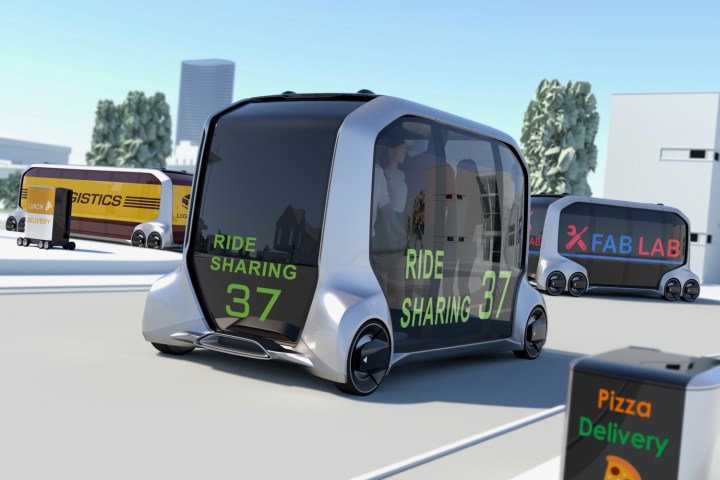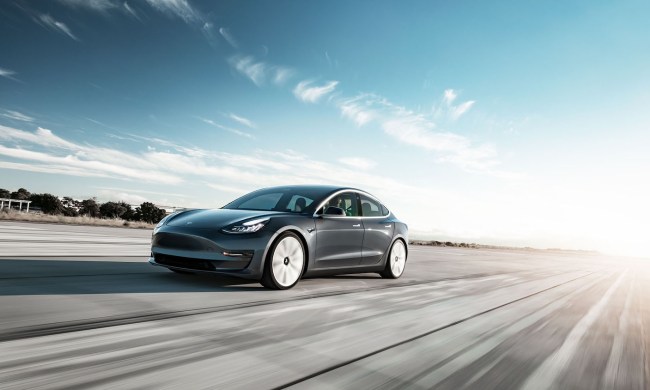
Five Japanese automakers — including Subaru and Mazda — are investing in a joint venture set up by Toyota and SoftBank to develop services that will utilize self-driving cars. The venture, dubbed Monet, is primarily aimed at ridesharing services along the lines of Uber and Lyft.
Subaru and Mazda, as well as Suzuki, Isuzu, and Toyota-owned Daihatsu, will each invest 57.1 million yen ($530,620) in Monet, in exchange for a 2 percent stake in the venture, according to a statement from the companies. Toyota and SoftBank will each retain their 35-percent stakes in Monet, which is currently capitalized at $26.6 million, according to Automotive News.
The self-driving car venture previously attracted investment from Honda and Hino — the Toyota-owned truck manufacturer. Both companies have said they will make additional investments, but will retain their current 10-percent stakes, according to Automotive News.
Monet launched in October 2018, with plans to roll out on-demand mobility services in Japan in 2020. The company is expected to serve as a launching point for services based around the Toyota e-Palette, a reconfigurable autonomous vehicle unveiled at CES 2018. Essentially a box on wheels, the all-electric e-Palette was designed to easily switch from carrying passengers to carrying cargo. However, the version Toyota displayed at CES was just a concept vehicle, and wasn’t ready for production.
While Toyota is also developing autonomous-driving tech aimed more at retail car buyers, the joint venture is yet another indication that self-driving cars will deploy in commercial fleets long before they are ever sold to individual owners. The rise of Uber and Lyft has left automakers looking for a way to compete. Ride-sharing presents a threat to car sales, but it also presents a potential new source of revenue for automakers. Self-driving cars are expected to improve ridesharing services, in part because they can stay on the road earning money longer than human drivers. In addition to investing in Monet, SoftBank has stakes in Uber and Chinese ridesharing giant Didi Chuxing. Toyota is also investing directly in Uber’s self-driving car program.
Joining Monet gives smaller automakers access to Toyota’s considerable research and development resources. Developing new technologies like self-driving cars is costly, and would likely be out of the reach of smaller automakers without partnerships. Subaru has already worked with Toyota on the BRZ and 86 sports car twins, and uses Toyota plug-in hybrid tech in the Crosstrek Hybrid. Mazda has an agreement with Toyota to develop electric powertrains, and the two automakers are building a joint factory in Huntsville, Alabama. The current-generation Toyota Yaris is based on the Mazda 2.
The cost and complexity of self-driving cars has led to numerous partnerships between automakers, as well as with tech companies and service providers like Uber. But it remains unclear if any of these joint ventures will speed up the mass deployment of self-driving cars, or whether the public will be ready for them.


